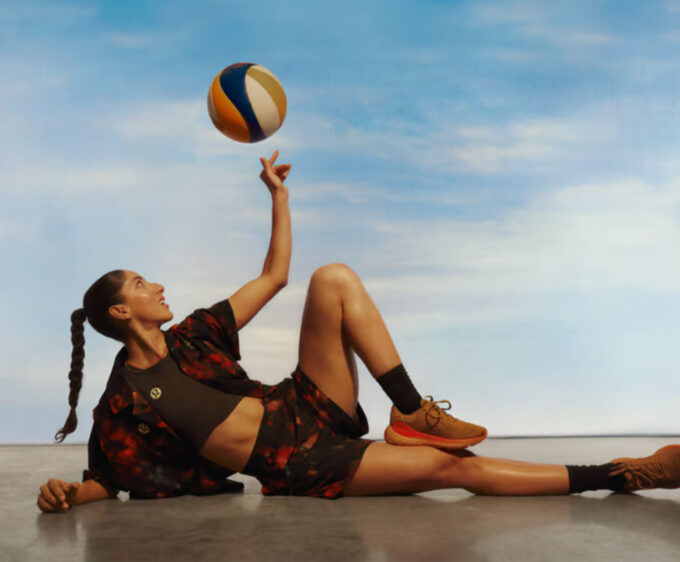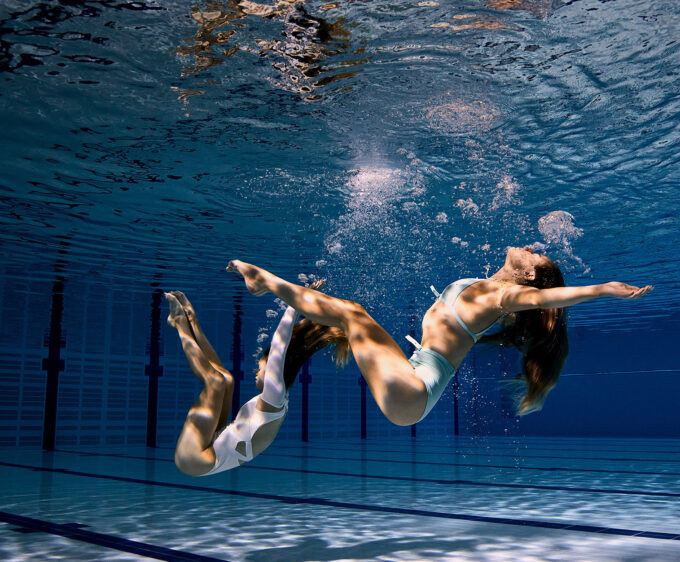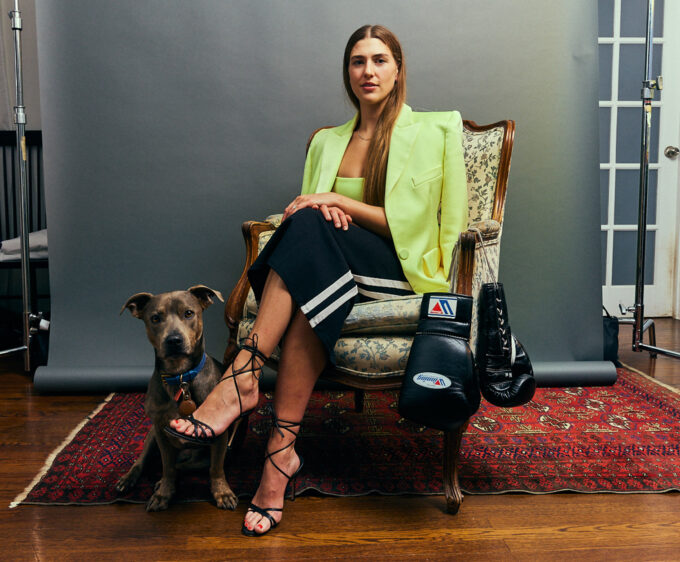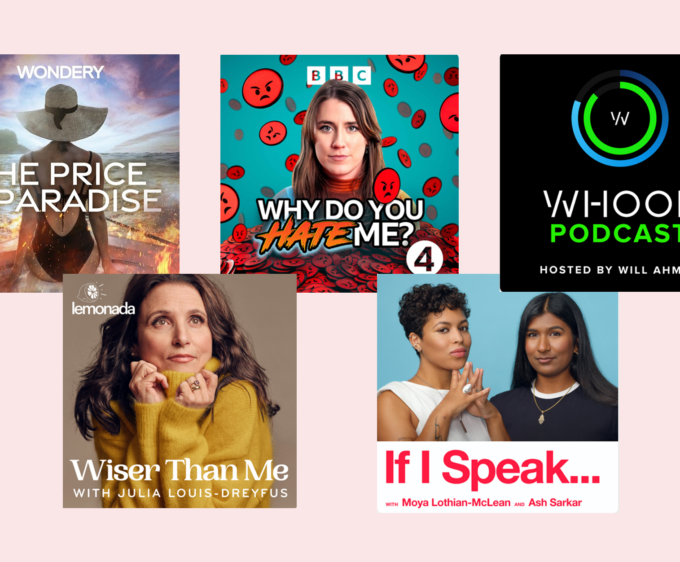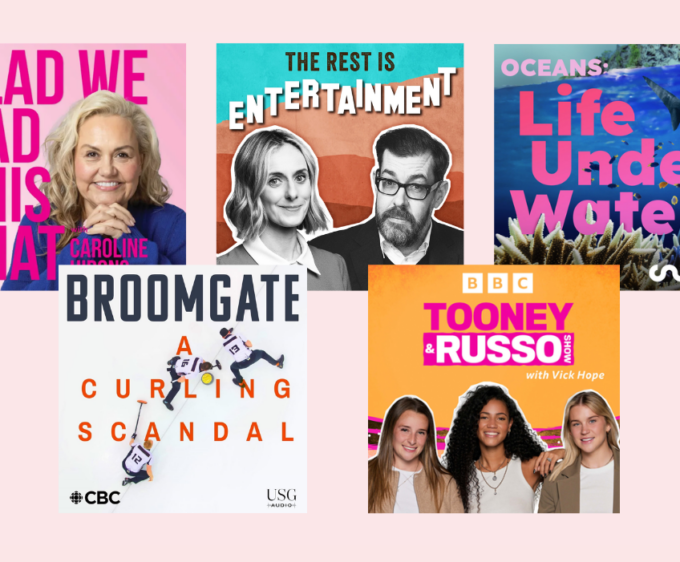
Mhairi Maclennan: A Hero We Need
GB international runner Mhairi Maclennan not only leads the field in races – with her fight to ban abusive coaches, she’s also setting the pace for change
By Kate Carter
Illustration by Esme Harvey-Otway
“I’m a very obsessive individual,” says Mhairi Maclennan. “It’s kind of an all-or-nothing situation with me. I remember in primary school, winning the Scottish primary-school championships, and I thought, ‘I’m an elite runner now!’ But, ironically, the less seriously I have taken it, the better I’ve got.”
Mhairi – GB international runner, cross-country specialist and a woman with many strings to her bow – is poking fun at her younger self, but her trajectory really has been unusual, difficult and truly impressive. She’s experienced horrible abuse, and come through it not only stronger, but fighting to stop it happening to anyone else. She spins so many plates, she could join a circus – but always seems happy to add one more. We so often laud sporting heroes as “inspirational” that the term has rather lost its force. But if anyone deserves it, it’s Mhairi.
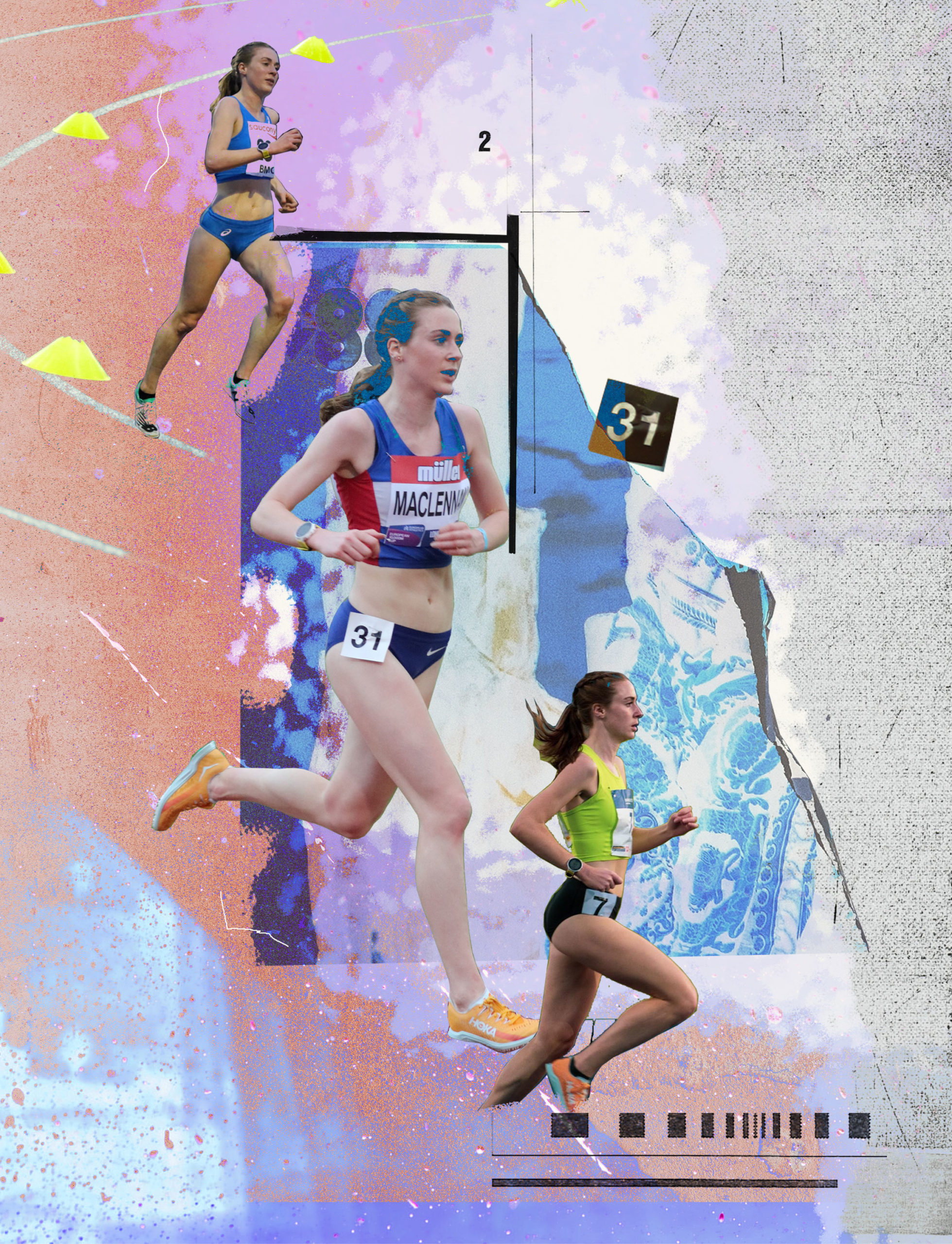
In February this year she, along with pole vaulter Anna Gordon and middle-distance runner Kate Seary, wrote an open letter to UK Athletics CEO Joanna Coates, urging her to impose lifetime bans on coaches found guilty of sexual or physical misconduct. It is, of course, depressing that they needed to. And this was no theoretical exercise for Mhairi – she suffered abuse at the hands of her own coach, who is now serving a five-year ban. The idea that he could come back and do it again to other female athletes was the final straw. “That campaign we did in February has essentially changed the entire direction of my life, and the trajectory of my career,” reflects Mhairi. Off the back of it, and the response they received, she and Kate Seary launched Kyniska, an advocacy group to protect, celebrate and boost women in sport. It’s named, appropriately, after the first woman to compete in the ancient Olympics – a trailblazer, as are they.
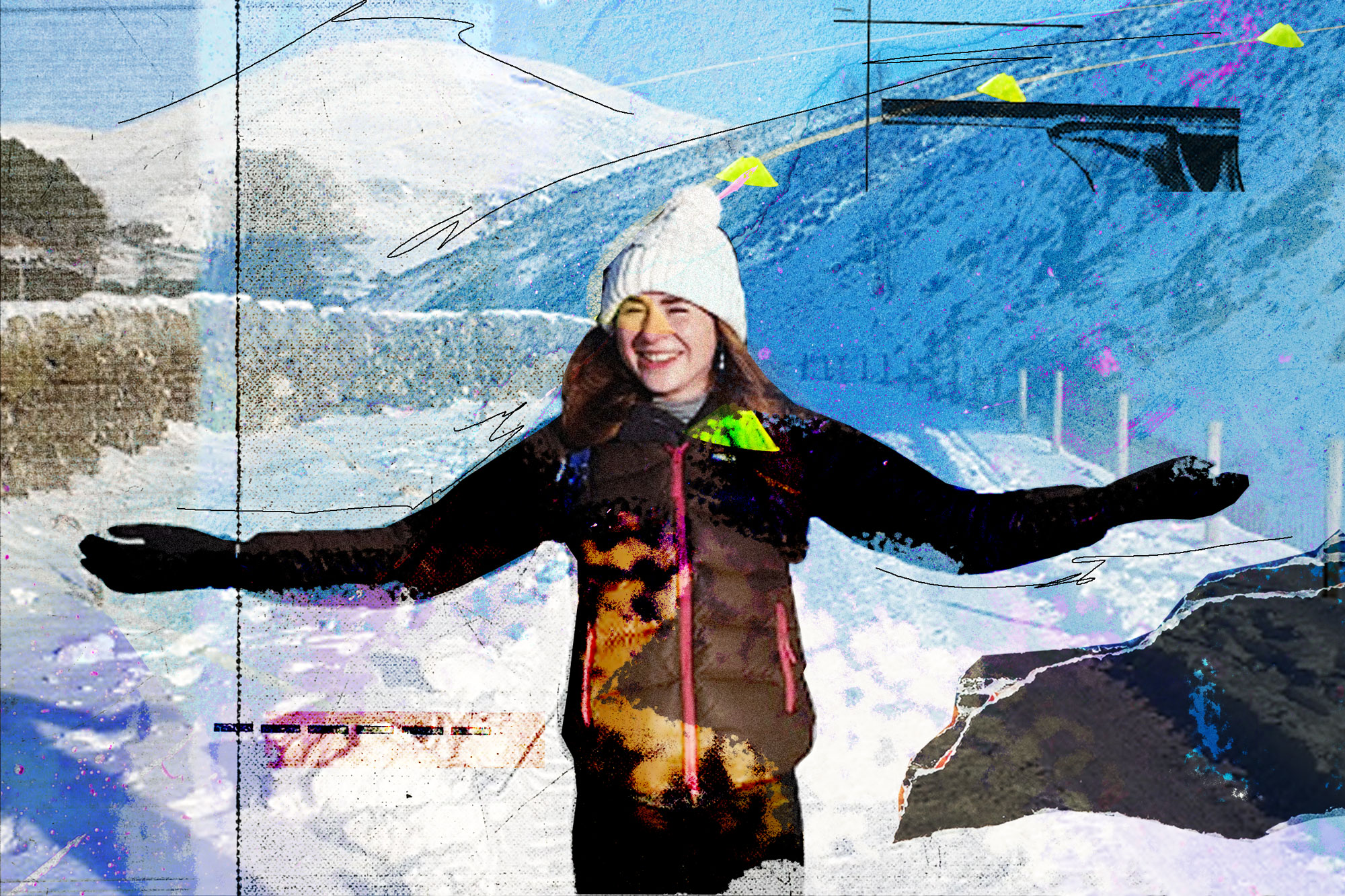
Of course, it’s one thing to set these things up, give them a nice name and think, “That’s it, job done.” To have true impact is hard work. Mhairi isn’t shying away from that – far from it. She’s doing an internship in policy and public affairs at the British Heart Foundation, on top of everything else. “I felt I wanted to get experience from a really established and successful charity that has obviously made enormous positive change through its policy campaigning and lobbying,” she explains. Creating change is also why she is so passionate about being part of the Unlocked programme from the Women’s Sport Trust: the ability to exchange views, talk to contemporaries in other sports and build a network – these are all powerful tools.
Protecting women and girls, calling out abuse when you see it, feeling free to speak up without fear of repercussions – these are her passions. But it takes time, and the force to resist inertia. “It’s a generational thing. It needs a culture shift – but it’s happening,” agrees Mhairi. “But it’s taken a while for that change to really take place, for victims themselves to feel like they can come forward, because there are no longer consequences like losing your job or not getting selected for key events.”
All this, though, is far from the path that Mhairi once thought she was treading. “I thought I was going to be a lecturer in Spanish literature,” she reflects. “I’ve always wanted to be part of something, and to make change, and to be a leader, but maybe because of the stuff I was going through, I never really had the confidence or freedom to really engage with anything on any real level. I used to watch from the sidelines, in awe but also quite envious of these people who had the confidence to go forward and trailblaze and make a difference. But I think being able to speak up about what had happened to me, and be listened to, was incredibly empowering. It gave me the confidence to also speak up and finally do what I’ve always wanted to do.”
Ironically, even If academia is no longer for her, it was living in Spain that made her a better runner. “It was almost impossible to be as uptight as I had been! In Spain, they just have a more relaxed approach to life, and I think that was really good for me, to be in an environment where I could see all these really elite athletes, who of course took it seriously and were really passionate and dedicated, but were also socialising and having fun and going out. I was like, ‘Oh wow, this is normal!’”
Learning to relax a little, and not see running as the be all and end all, was something of a revelation. “I think, as athletes of any sport, we have a real tendency to measure our entire self worth by our performance. If our performance is doing really well, that’s fantastic because you feel superhuman and unstoppable,” she muses. “But when that goes the other way – you get an injury or you have a bad day – suddenly you find yourself feeling very empty and kind of worthless. Because you have based your entire self worth on your outcome goals, as we would call them. Like, I have to come first in this race, I have to qualify for this team – and if I don’t, then what have I got to fall back on?”
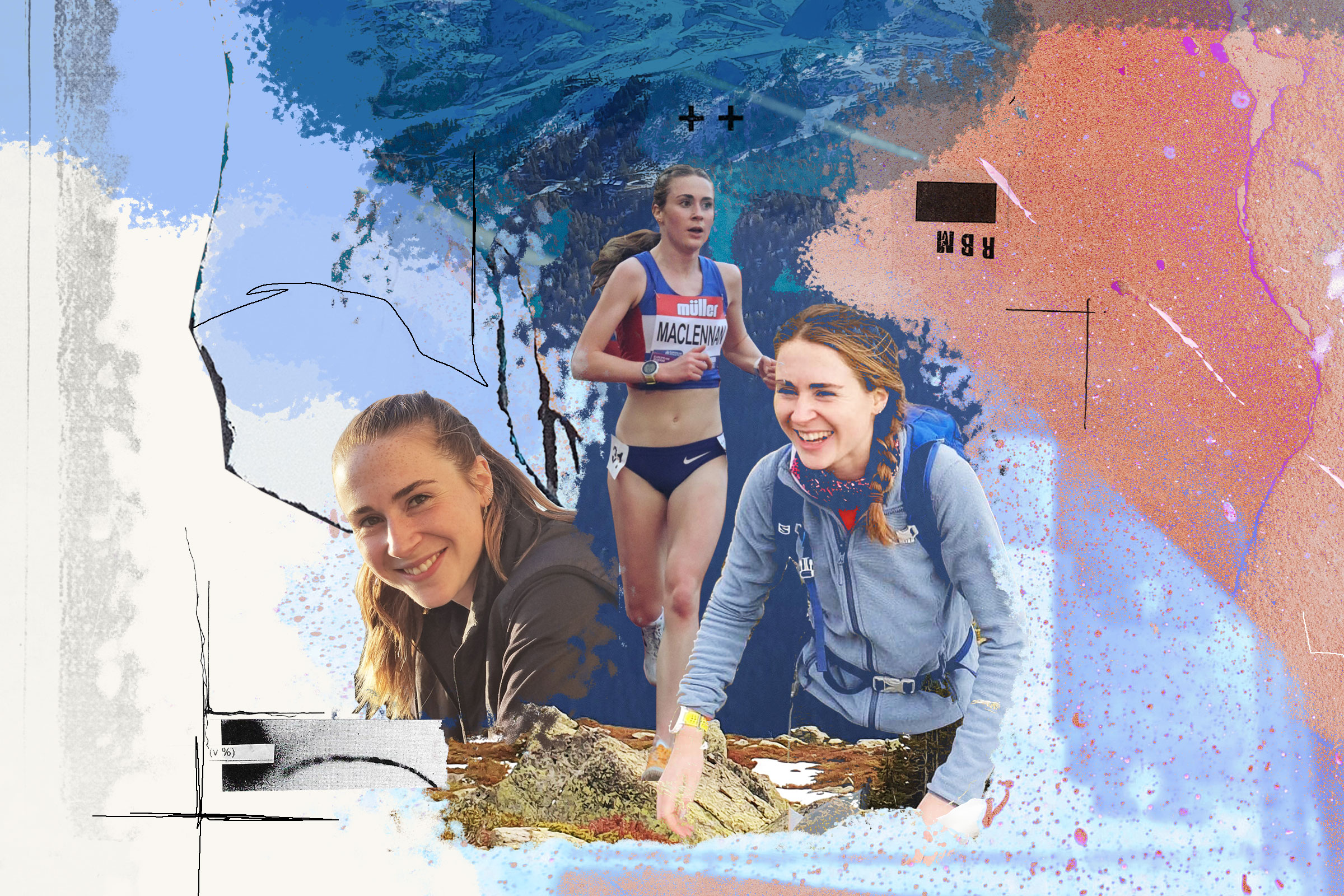
ALL OR NOTHING

“When I went to uni, I think I probably took my running too far. That’s kind of a message I would definitely send to people – I wasn’t actually that good at running, but I took it so seriously, as if I was aiming for the Olympics. Now that I take it a lot less seriously, ironically I enjoy it far more.” Talking of enjoyment, though the issues that Mhairi is passionate about are serious, she certainly has time for fun. “I love just hanging out with my friends, going for coffees or lunches or walks. I’m really fortunate I live in Edinburgh, so close to the Pentland Hills. They’re baby hills, really – my dad wouldn’t even deign to go near them! He works in mountain rescue, so if you don’t need a rope to go up them… but they’re right on my doorstep – you can get the bus and be there in 10 minutes.”
Walking is something Mhairi – like so many of us – did a fair bit of in the pandemic. Bouts of recurring bronchitis knocked her out from summer 2019. “So when the pandemic started and races were getting cancelled, everyone was like, ‘Oh no, it’s so annoying,’ and I was like, ‘Thank God! I can actually, like, press pause and stop stressing about having to get back for races!’ I wasn’t running at all, just going for walks every second day.”

She has, though, come back – and come back strong. Indeed, the evening after we talk, she wins a 10,000m track race in a time just seconds outside her 2019 PB. “I guess my main goal now is to try and qualify for the Commonwealth Games next year in Birmingham,” she says. “But while it’s a big goal, it’s not the be all and end all. I’m still enjoying the journey and being grateful that I’m able to be back. You can really easily lose sight of that. Like, when you’re training and aiming for something, you can be quite mindful – and then you have a good performance and all of a sudden, all the mindfulness disappears.” She laughs at herself: “Success! Must focus on this goal now!”
Talking about racing leads me to ask how she feels about sports kit, particularly in athletics, where women tend to be in far skimpier kit than men. “It’s interesting, I didn’t start wearing racing briefs until I lived in Spain,” she muses. “I always raced in shorts. But I remember getting selected from Madrid to run their national championships. I went to pick up the kit and they only had briefs for women. I asked if I could have shorts but they said, ‘No, those are for men.’ I remember thinking, ‘That’s not OK!’”
“A lot of people don’t feel comfortable in them. But then I think you can also harness that, take control of it and use it as a body-positivity thing; showing that it doesn’t matter what you look like – I’ll wear these and love myself in them, and just kind of accept that that’s a uniform for women racing. Or you could also question it and say, ‘No, I’m going to wear shorts.’ For me, now, I feel really powerful when I put on my racing briefs and my vest – it’s like having a uniform that correlates with racing.” Like putting on your superhero costume, I ask? “Exactly! It makes me feel I’m ready to put on a performance. When you put them on to race, it feels like a special occasion, a racing outfit.” We talk too, about how choice is fine but it’s odd when sports have mandatory kit – hockey, for instance, where it’s often skirts or skorts. “It’s weird that that’s still the outfit for women, as if we are trying to feminise them,” she agrees.
“There is that paradox of being in this kind of masculine power, strength, domain of sport – historically and traditionally, it’s a man’s world. And you have female athletes talking about their representation in the media, where they are either sexualised or considered almost not women… and it’s an identity that is sometimes being imposed on different sports, depending on their outfit. I do hope it changes, because I’m sure not every woman on a hockey team wants to wear a skirt!”
Mhairi has so much to say, and so powerfully, about all the issues that surround women in sport, that you really hope she gets involved in management. Her voice would be a formidable tool for change. Perhaps she will – she certainly seems to thrive on having multiple strings to her bow. “I’m really the kind of person who needs something else, other than running,” she admits. “Like, it’s fine, whatever happens, because I’m still going to work on Monday. I have a job, and I can do well there. People need me to perform there too. Running would probably still be my main priority, but I have other things I’m passionate about, which I think helps me keep a balance.” It might help her, but you feel it’s really going to help a lot of other women, too.
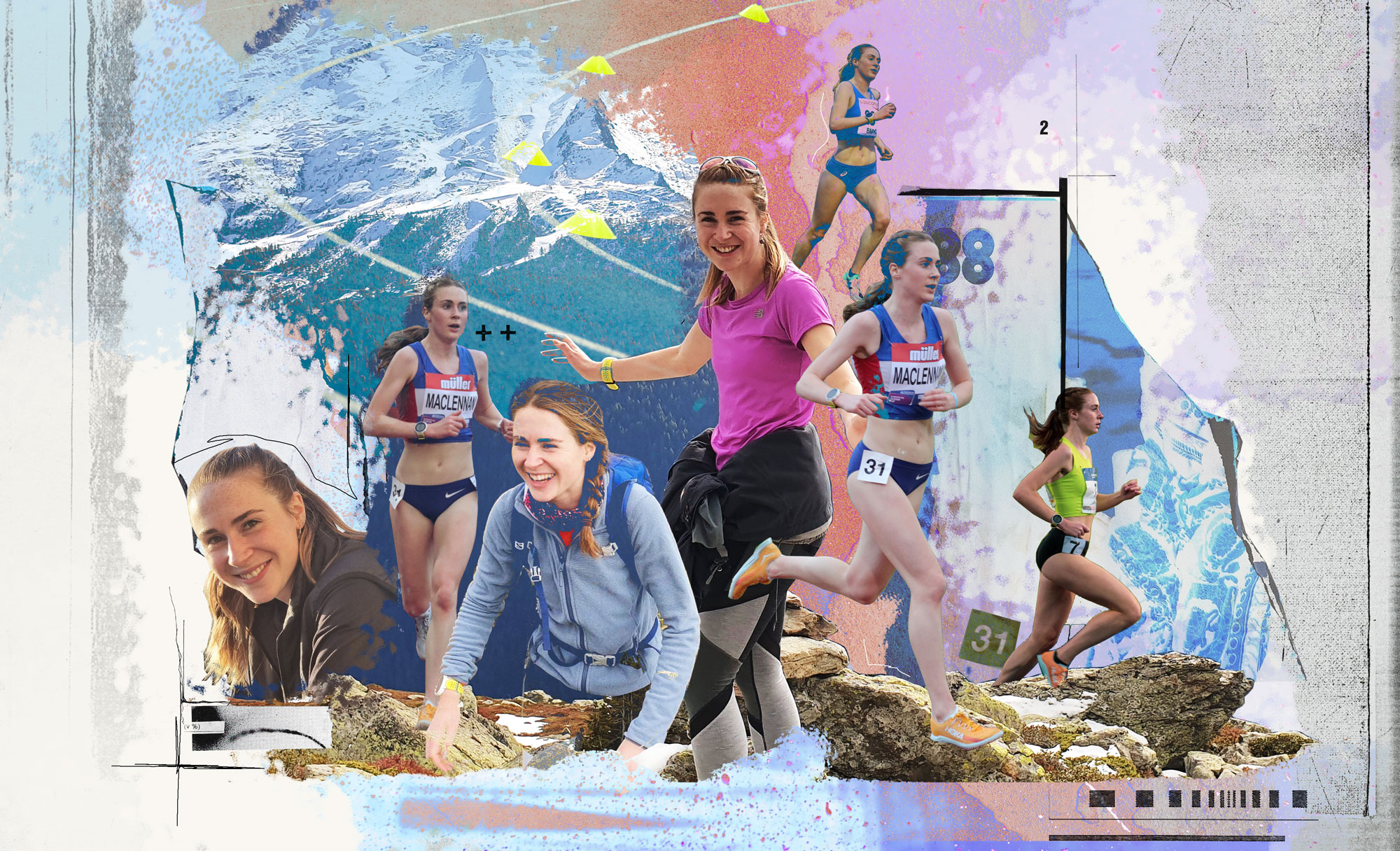
Photography James Rhodes, Paul Bannister, Peter Brown, Editorial Design and Art Direction Root
